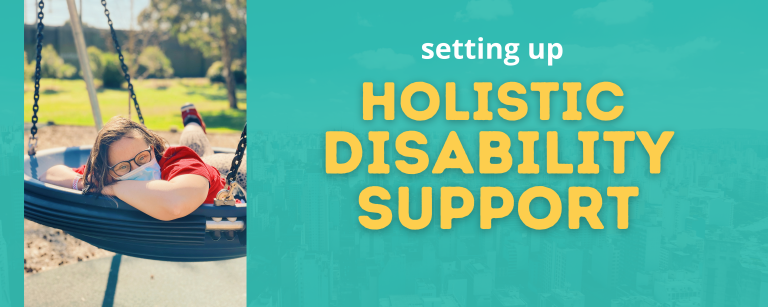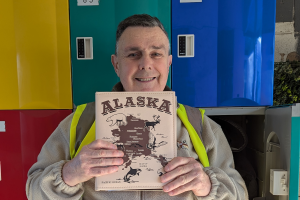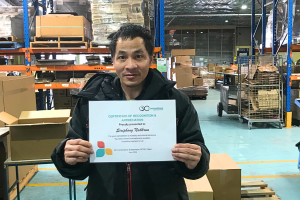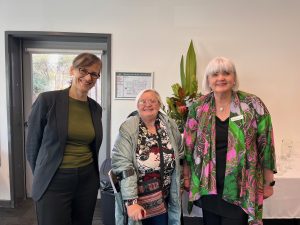Navigating the world of disability healthcare can be tricky, especially when you have more than one disorder. Neurodiverse people are facing a growing field of specialisation, which can impact the way people with disabilities receive care.
We set out to understand this complex situation and how to work with the system to get the best support possible.
What is neurodiversity?
Neurodiversity presents itself differently in almost every person, because every person is different. From autism to downs syndrome, developmental disabilities to mental health disorders, neurodiversity comes in all shapes and forms. What strikes us apart from the “norm”, neurotypical, is that our challenges impact the way we engage with and participate in the world.
It’s estimated that 20% of people are neurodiverse, and out of that group over half will have multiple disorders. We don’t know why co-occurrence is so common in neurodiversity, but the overlapping and repetitive symptoms of the DSM-5 might have something to do with it. New research has emerged that analyses the diagnostic manual and its accuracy, with statistics that indicate almost 40% of symptoms repeat. Dr Miriam Forbes says, “More than a third of the diagnoses have *every* symptom repeating in at least one other diagnosis.” This repetition isn’t necessarily a bad thing, but it does demonstrate that we need stronger research into neurodiversity and its mingling symptoms. And it asks the question: what really differentiates disorders, if not the symptoms?
How does this impact healthcare?
In contrast to the overlapping of disorders, our healthcare system is becoming more separated. Medical professionals are favouring specialisation, becoming more focused on specific diagnoses instead of looking at the big picture. If disabilities often comes in multiples, why are we only being seen through the lens of one?
Those in the autistic community are 4 times more likely to have severe mental health problems than allistic (non-autistic) people, often due to exclusion and shame. In Australia, only 50% of autistic adults report they’re receiving adequate care across multiple disorders. It’s common to see stories about people living with disability who have been dismissed due to disability blindness, who have been referred elsewhere for an issue that is deemed separate from the rest.
What is disability blindness?
Disability blindness is when a medical professional is only able to provide that support for one disorder, omitting the rest.
It’s just not the way our brains work – our mental states are naturally fluid, our moods and emotions always changing, and we react in varied ways to different environments. Our symptoms meet and overlap, constantly responding to each other and influencing each other. Take, for example, someone who has rejection sensitivity, which is usually attributed to ADHD. If that drive, that dread and imposter syndrome, starts getting stronger, it could trigger physical compulsions like hitting your legs, which is usually classified as autism. Our minds work in complex ways, but our emotions, behaviours, and ”symptoms” are not separate.
So, how do we avoid disability blindness? How to we make sure to get the best holistic care possible?
Multidisciplinary Care
The first piece of the puzzle is a multidisciplinary approach. This means that you will still have specialised care, but there is an overarching, collaborative goal based on inclusive communication across services. If we can’t change the game, we need to learn how to work with it. By creating tangible, clear links and bring it all back into the centre: the individual receiving help. Whether it be a carer, a person with disability, a support coordinator – we put communication at the forefront and re-personalise our healthcare.
Education and Advocacy
The following pieces are education and advocacy. Again – we play the long game, spreading the good word and reminding providers that diversity really means diversity, in every sense. It’s about accountability, and creating a better world for people with disability, including them in work, education, and community. Ensuring no one gets left behind. Understanding co-occurrence and the need to be open-minded when supporting people with disability is how we empower participants. At OC, we do this through our Co-Achieve Model. Co-achieve is our way of working with participants on all the different areas of life that are important for happy and healthy living; including home, work, recreation and skill development. The Co-achieve Model helps us learn how to support each individual to reach their unique goals with a holistic, person-centred approach.
People living with disability are more than just their disability. We’re a community filled with kindness, creativity, and a deep connection that doesn’t need words. Neurotypical or diverse, we all desire the same things in life: to love and to be loved, to be secure in housing, work and relationships. And to meaningfully contribute to society.
Neurodiverse people deserve to be heard and valued, because at our core, we just want to belong. Community is so important to us humans, and we want to be a part of it. Sometimes, we need support to participate – holistic, multidisciplinary care that gives us the boost we need to build our independence, confidence and skills.
A boost, equity, whatever you want to call it – it has the power to change lives.





